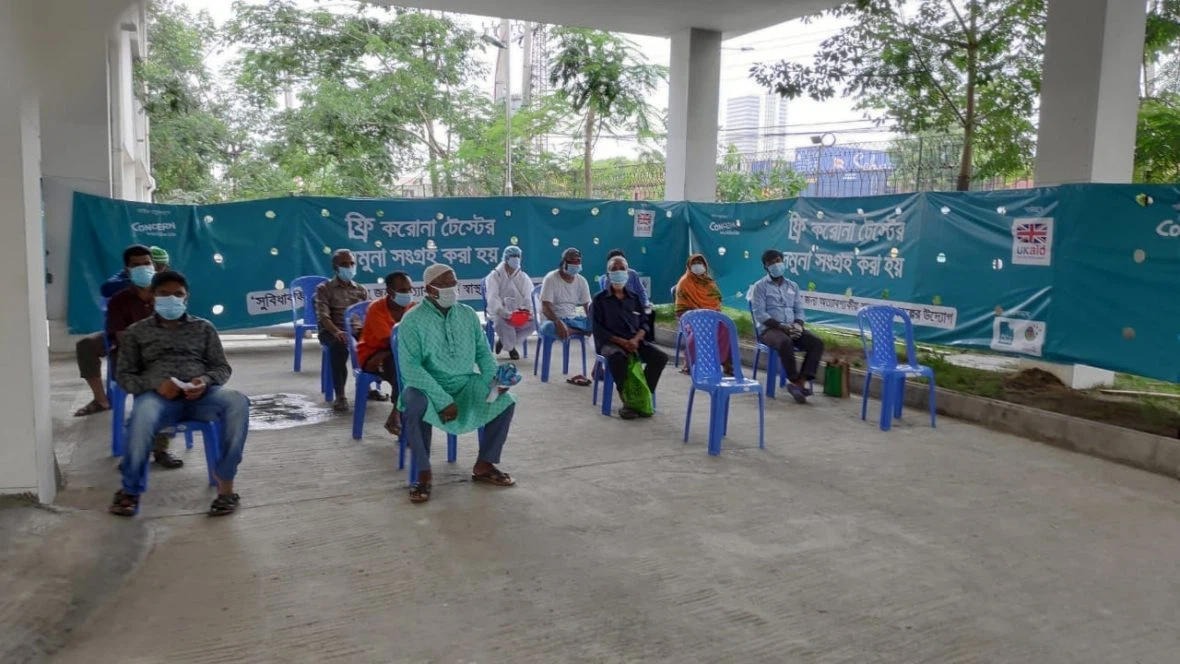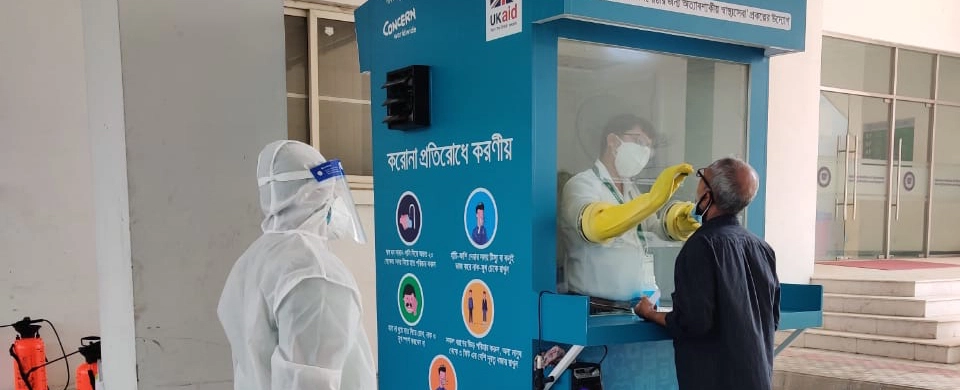A consortium led by Concern Worldwide in Bangladesh is piloting a new system designed to provide easy triage and sample collection for people with COVID-19 symptoms. If successful, it could potentially be scaled up across the country.
Cases rising sharply
Bangladesh has been reporting rapidly increasing numbers of confirmed cases of COVID-19, a real worry in a country where the potential for social distancing and access to effective sanitation are a real problem. The first deaths from the coronavirus have been reported in the world’s largest refugee camp, located in the south of the country.
The most recent WHO statistics for Bangladesh — a nation of over 169 million people — show over 275,000 confirmed infections and and 3,657 deaths. But that is almost certainly well below the true number of cases, and fatalities. “We suspect that the real figure is much higher in the country, but there is a lack of tracking,” according to Concern’s acting Country Director, Hasina Rahman.

A Concern-led consortium, designed to improved essential healthcare for disadvantaged communities, has moved quickly to come up with a simple and effective screening solution in the face of the pandemic. It’s an all-in-one mobile diagnosis and sample collection service, and it may well become the frontline for tackling the coronavirus in Bangladesh.
Mobile testing solution
Patients arriving at the mobile center receive free masks and hand sanitizer and are directed to a call booth, for consultation with a Doctor via video call. If the patient is suspected of having COVID-19 symptoms, they are registered and referred to the sample collection booth. Trained staff then take a swab and the sample is sent to a laboratory for testing. Currently the screening capacity is 150 samples per day, and patients receive results within 48 hours. The service is free of charge.
Hasina Rahman says that this could be a very effective way to ramp up COVID screening across the country, especially in rural areas. “We are glad that we have been able to step up during this unprecedented crisis to support the government.” Given the population size and some of the access challenges, the task is enormous and the stakes are high.

Bangladesh has made huge gains in reducing extreme poverty in recent decades, but many people still live close to the poverty line, and the coronavirus pandemic has already had a serious impact. A nationwide lockdown restricted economic activity and major orders have been cancelled by international fashion retailers, leaving workers in the country’s pivotal garment industry badly exposed.
Concern has worked in Bangladesh since 1972.